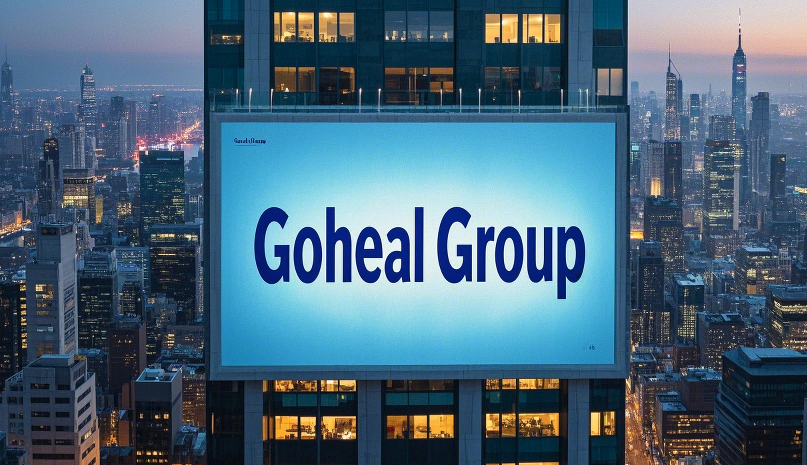"The world's great things must be done in detail; the world's difficult things must be done in easy." In the capital market, every acquisition of a controlling stake is like a complex chess game. Before the move is made, time is the biggest uncertainty. Some transactions are vigorous and completed in just a few months, while others are full of twists and turns and remain unresolved after several years. How long does it take to acquire a controlling stake in a listed company?

American Goheal M&A Group
From Elon Musk's $44 billion acquisition of Twitter, which was completed in just half a year, to Nvidia's acquisition of Arm, which was delayed for two years due to regulatory issues and ultimately failed, the transaction time is not fixed, but is affected by multiple key factors. As a deep participant in the M&A market, Goheal is well aware of the "hidden variables" that affect the time of controlling stake acquisitions. Today, let's analyze the time law in this capital game.
"Instant kill" acquisition, or a long tug of war? The decisive factor of transaction time In the M&A market, from transaction negotiation to final delivery, it may be a "blitzkrieg" or a "marathon". So, what factors determine the time required for a transaction?
Target company situation: clean books vs. "mysteries"
Imagine that if you want to buy a company with clear financials, simple asset structure, and no major debt disputes, the entire transaction process will be much smoother. But if the target company hides huge debts or even faces lawsuits or regulatory investigations, due diligence will delay the progress of the transaction.
Goheal found that information transparency is one of the key factors that determine the speed of transactions. Many mergers and acquisitions have been repeatedly dragged out due to financial or legal issues of the target company, and even have to adjust the acquisition price or abandon the transaction.
The speed of fundraising by the acquirer: cash in place, or "finding money while negotiating"?
Some buyers are rich and have ample cash, such as Musk's acquisition of Twitter, which directly raised $44 billion from investors and the funds were in place quickly. Some acquirers need to rely on bank loans, investment institution financing, bond issuance, etc., which leads to a longer transaction time.
Funding issues are often an accelerator or stumbling block for mergers and acquisitions. If the funds are not in place, the transaction time may be extended endlessly, or even all the previous efforts will be wasted.
Regulatory approval: market freedom, or many levels?
Regulators are the "gatekeepers" of the M&A market, and their attitudes directly affect transaction time. Small-scale transactions may be approved within a few months, while M&A cases involving national security review, antitrust investigation, and industry-specific licenses may take several years to pass.
For example, Nvidia's acquisition of Arm took two years due to antitrust review and was eventually terminated; ByteDance's sale of TikTok's US business has not yet reached a final transaction under regulatory intervention. If the regulatory agency's attitude is vague, the transaction time often becomes uncontrollable.
Market environment: sailing with the wind or high winds and rough waves?
The M&A market is greatly affected by the economic cycle. When the economy is good, the acquirer is confident, shareholders are willing to accept reasonable offers, and transactions progress rapidly; but if there is a financial crisis, market turmoil, rising interest rates, and investor confidence declines, negotiations are prone to repetition, and transaction time is naturally prolonged.
Goheal has observed in the past decade that during economic recessions, a large number of transactions were postponed or canceled due to market instability, and some buyers even lowered the transaction price on the grounds of market downturn, triggering a new round of negotiations.
Timetable for M&A transactions: theory vs. Reality
In theory, the acquisition of a controlling stake in a listed company can be carried out in the following steps:
1. Intention reached (1-3 months): The buyer contacts the target company to assess whether there is a possibility of acquisition.
2. Due diligence (3-6 months): Comprehensive review of finance, law, operations, etc. to ensure that there are no hidden risks.
3. Formal negotiations and signing of agreements (2-4 months): Determine the acquisition price, transaction structure and related terms.
4. Regulatory approval (6 months-2 years): Submit an application to the China Securities Regulatory Commission, antitrust agencies and other regulatory authorities and wait for approval.
5. Delivery completion (1-3 months): Final processes such as equity change, capital payment, and management transfer.
But the reality is far more complicated than theory. If the transaction involves cross-border mergers and acquisitions, regulatory review, complex shareholder structure and other issues, the timetable may be infinitely extended.
How to shorten the transaction time? Time management skills of M&A experts
1. Prepare in advance to reduce due diligence time
Goheal emphasized that doing a good job of due diligence can avoid unexpected delays in the later stages of the transaction. Many companies failed to discover financial problems in time, which led to re-evaluation of prices in the middle of the transaction, and even forced renegotiation, wasting precious time.
2. Optimize financing plans to ensure that funds are in place quickly
Insufficient funds are one of the common reasons for transaction delays. Professional M&A teams usually determine financing channels before negotiations and ensure that funds can be delivered on time to avoid transaction failures due to financial problems.
3. Communicate with regulators in advance to reduce approval risks
Regulatory approval time is often an uncontrollable factor, but it is not unsolvable. Experienced acquirers will communicate with regulators in the early stages of the transaction to understand the review issues that may be encountered and prepare response plans in advance, which can speed up approval and reduce unnecessary waiting time.
There is no standard answer in the capital market, and time is the biggest variable
There is no "standard process" for the acquisition of controlling rights of listed companies. The time of each transaction depends on the market environment, regulatory policies, and the degree of preparation of both parties to the transaction. Some transactions are completed in one go, while others are repeatedly tugged at details.
Do you think the future M&A market will be faster or slower? What factors will become the key variables affecting the speed of acquisitions? Welcome to leave a message in the comment area, discuss with Goheal, and jointly interpret the time logic of M&A transactions!

Goheal Group
[About Goheal] Goheal is a leading investment holding company focusing on global M&A holdings. It is deeply engaged in the three core business areas of listed company control acquisition, listed company M&A and restructuring, and listed company capital operation. With its deep professional strength and rich experience, it provides enterprises with full life cycle services from M&A to restructuring and then to capital operation, aiming to maximize corporate value and achieve long-term benefit growth.